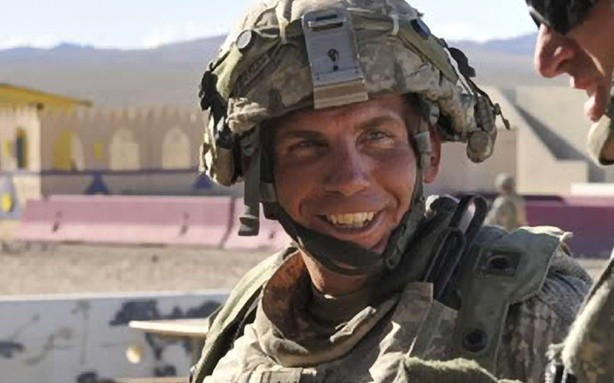Malaria Pills Linked to US Soldier Robert Bales's Afghan Killing Spree

An anti-malaria drug commonly distributed to US soldiers may have played a role in the breakdown of an officer who murdered 16 Afghan civilians in a killing spree last year, experts believe.
In June, Army Staff Sergeant Robert Bales pleaded guilty at a millitary tribunal to murder, attempted murder and aggravated assault after walking into a village in Kandahar province in the early hours of 11 March and shooting and stabbing 16 victims, most of them women and children, before dragging their bodies outside and setting them alight.
During the trial, it emerged that Bales had suffered a head injury, and had been taking steroids and drinking heavily on the night of the attack. It is also believed that he was traumatised after seeing a fellow soldier's arm blown off earlier that day.
"There's not a good reason in this world why I did the horrible things I did," he told the tribunal.
But experts now believe that there may have been another factor at play: mefloquine, a drug commonly issued to US millitary and Peace Corps personnel in malarial regions, which has been linked to a number of suicides and violent crimes.
"I like to say this drug is like a horror show in a pill," Remington Nevin, a former Army physician who is now an epidemiologist at Johns Hopkins University, told Wired.
In tests, the drug has been shown to cause sleep deprivation, anxiety and hallucinations, and is proscribed for those with brain injuries.
In April this year, the US military advised the use of the drug only for personnel resistant to other anti-malarial medication and with no history of traumatic brain injury or psychotic episodes.
Documents recently acquired by Nevin indicate that Bales may have been taking mefloquine before the murders.
In the 'adverse event report' by the Food and Drug Agency, the author states, of a subject who killed 17 civilians (the same number Bales was initially believed to have killed): "This patient was administered mefloquine in direct contradiction to US military rules that mefloquine should not be given to soldiers who had suffered TBI due to its propensity to cross blood brain barriers inciting psychotic, homicidal or suicidal behaviour. "
The US Army has so far refused to confirm if Bales was taking mefloquine at the time of the killings.
"From a scientific perspective," Nevin told Forbes, "it's undoubted in my mind that if Bales was taking mefloquine at the time of this alleged event, it's almost certain that toxic effects played a significant role."
So far, Bales's defence team has not mentioned mefloquine as a mitigating factor in his trial, but experts believe they may do so at his sentencing hearing later this month.
"If it's seen as mitigating in the Bales case, I could certainly see this coming up in a lot of cases where people might say 'mefloquine made me do it,'" Elspeth Cameron Ritchie, a former Army psychiatrist told Wired.
In July, the FDA gave mefloquine a boxed warning, the most serious kind, acknowledging serious neurological and psychiatric side-effects.
© Copyright IBTimes 2025. All rights reserved.





















